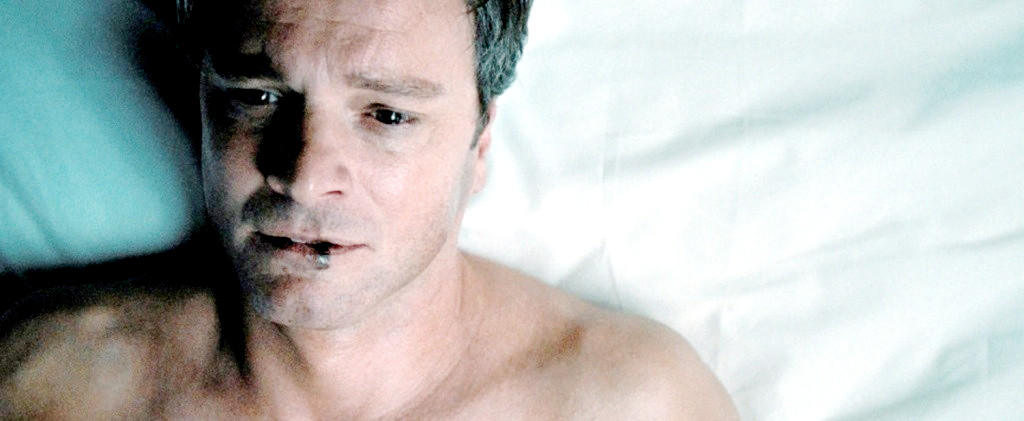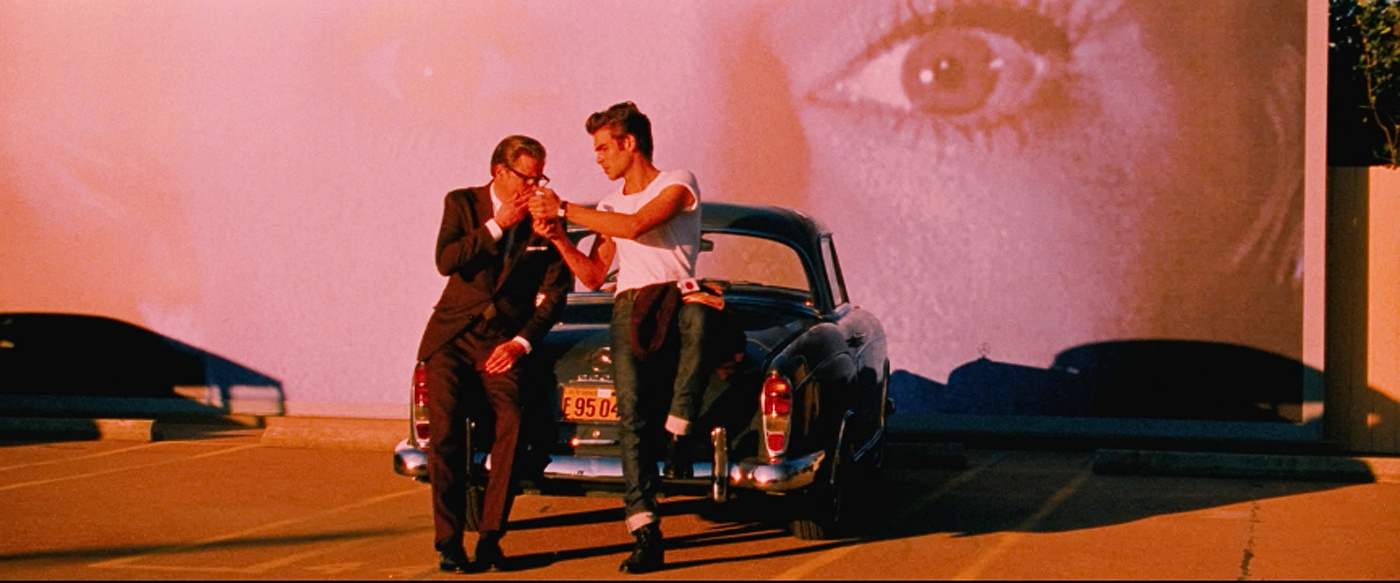
Ok, ok, I’m admittedly being uncharitable towards Tom Ford’s A Single Man (and, being sadly fashion-disabled, I stole Firth’s outfit language from here.) But only a little. Let me put it this way: Two recent films came to mind while watching this sad, slow story unfold: Lone Scherfig’s An Education, in that Colin Firth — like Carey Mulligan — rises above the material and gives an Oscar-caliber performance in a movie that’s ultimately only ok. And James Cameron’s Avatar, in that, like life on Pandora, A Single Man has moments of shimmering beauty and yet still, weirdly, remains inert and uninvolving for most of its run.
I’ve never read the 1964 novel by Christopher Isherwood, but I’m pretty sure the problem here lies with Ford. Granted, this is a pretty good attempt at a first film from someone who’s not a filmmaker — anyone remember artist Robert Longo’s stab at Johnny Mnemonic? Still, particularly in its first hour, the pacing of A Single Man just feels off. Ford keeps putting forth an image he likes (girl-skipping-rope, Firth-moving-against-a-crowd, bare-chested-men-playing-tennis) and then holds it for several beats too long. As a result, and even despite the best efforts of its lead actor, A Single Man often struggles to achieve any dramatic momentum. (This tendency is at its worst during the English class scene. Oh, and by the way, worst…prof…ever. He veg’s out for the duration, kicks some k-nowledge at the end, and leaves. Huh?) The individual images here are all very pretty, yes, if a bit fussed-over. But the film itself moves at a lurching, stop-and-go pace, if it moves at all, to the detriment of the story being told. It’s like watching a slide show.
And the story here is actually pretty simple and straightforward, and should be elemental in its power — It’s Love Lost, basically. The year is 1962, and George Falconer (Firth) — a closeted English professor teaching in Los Angeles — has just lost his partner of 16 years, Jim (Matthew Goode, a.k.a. Ozymandias), in a tragic car accident. Given the times, George cannot even mourn publicly or attend his beloved’s funeral. In fact, he only finds out about the crash a day later, via a call from the deceased’s cousin, Donald Draper — yes, really.
And so the abyss yawns beneath George, and a suicidal depression takes hold. The only person he could possibly confide in about his terrible ordeal is his old friend Charley (Julianne Moore), a woman he slept with years ago and who apparently has been carrying a torch for him ever since. But she’s got her own problems, and so George — unable to face a life without Jim — starts making (very fastidious — see below) plans to go out with a bang. Can anything prevent the grief-stricken Prof. Falconer from losing out to his sorrows and taking wing on a bullet? Well, there is one fetching student (Nicholas Hoult, formerly of About a Boy), and his pink angora sweater ($285)…
Again, I haven’t read the Isherwood novel and don’t know how it’s been tinkered with. But, even despite Ford’s tics, there are some problems here. This is one of those stories where the main character is deeply and utterly depressed — suicidal, even — and so naturally he keeps being pestered by extraordinarily handsome potential significant others, wanting to save him from himself. Um, yeah. (I’ll give it this: A Single Man works better than Sideways in this regard, if only because Paul Giamatti is Paul Giamatti and Colin Firth (when he’s not Mr. Darcy, of course) is Colin Firth, and thus much more likely to draw attention, I would think.) Also, for someone who’s depressed to the point of planning his own suicide, George sure seems to sweat a lot of not-very-important details. (Consider, in contrast, In the Valley of Elah, as Tommy Lee Jones’ early military rectitude completely falls apart as he succumbs to his sadness. When you stop caring, you stop caring.)
But those are basically quibbles. The larger problem of A Single Man is that, all of Firth’s impressive efforts notwithstanding — and mind you, he is very, very good here — A Single Man ends up feeling like a stylistic exercise more than an actual emotion-driven story. Ford finds a neat trick here where he turns the color saturation up or down depending on George’s mood: When life improves, however briefly, his world literally gets more colorful. But Ford keeps dialing it back-and-forth like a child with a new toy, and the effect eventually loses its luster. And that gimmick is as close as Ford gets to connective tissue sometimes. Otherwise, A Single Man feels like a collection of static images out of…well, a fashion catalog. They’re often striking in their lush melancholy, yes. But they’re static all the same.

